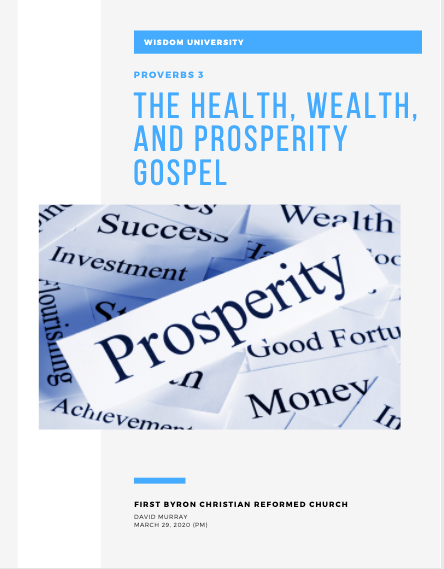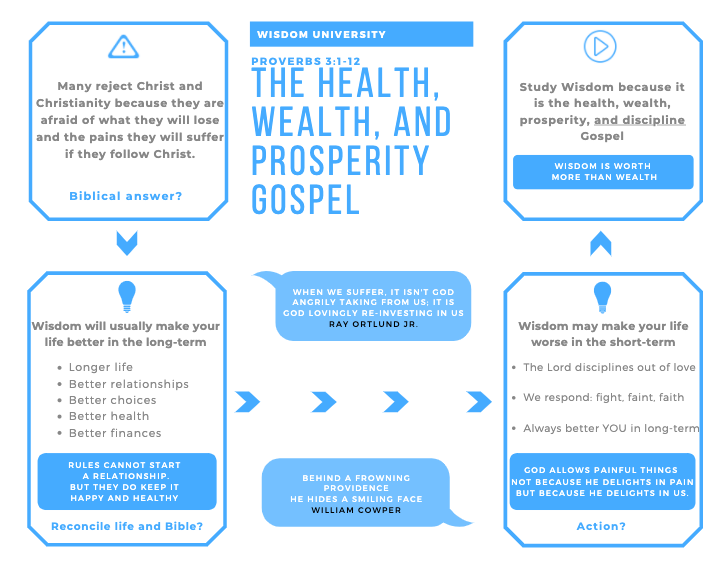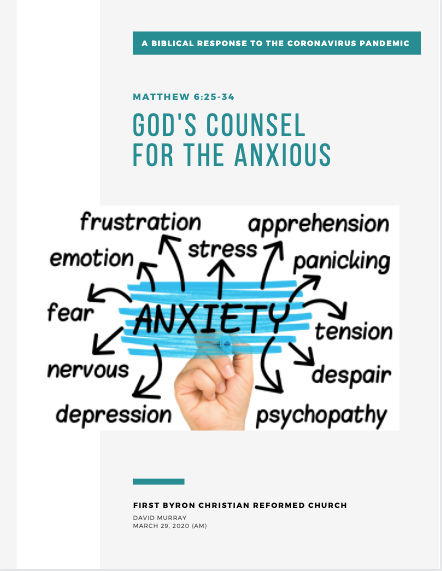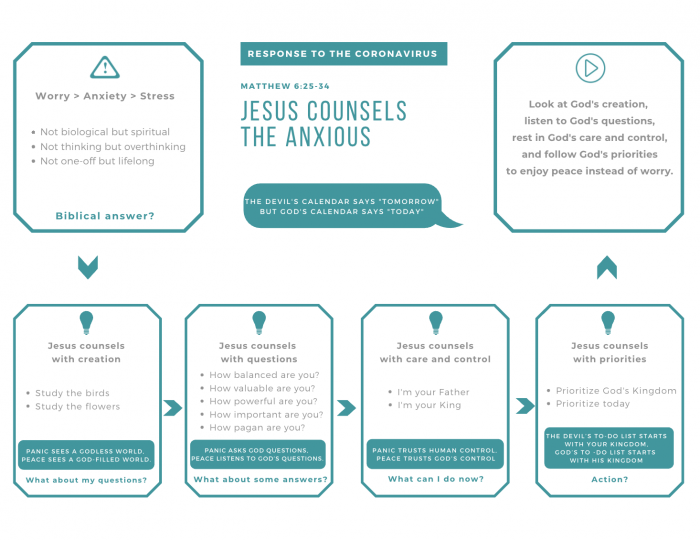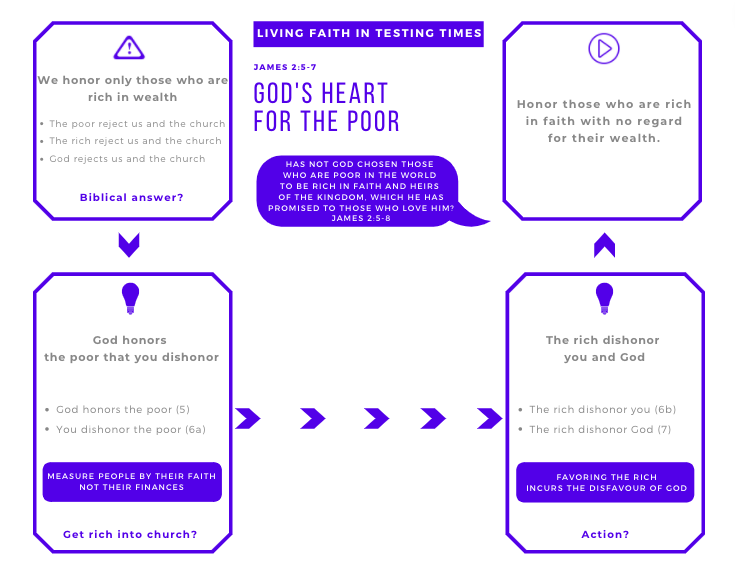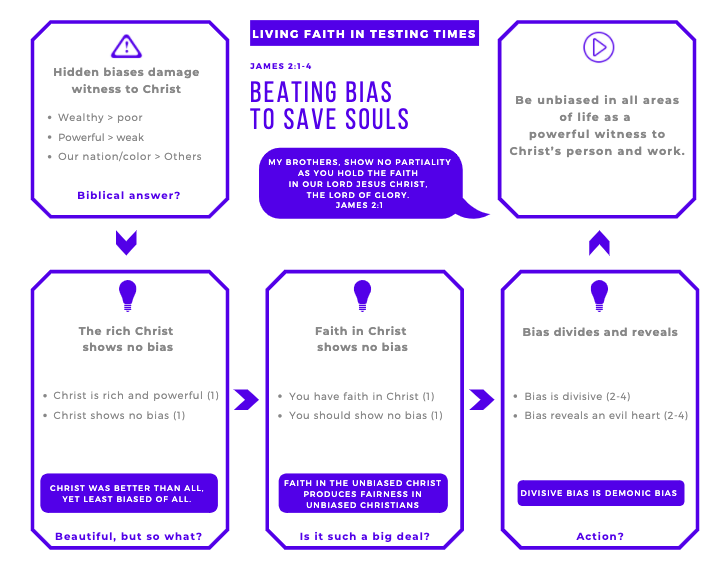Some Christians have lots of God-words but no God-works. I’m sure you’ve met them. The Apostle James certainly had and it raised serious questions in his mind.
- Are they truly saved?
- Can they ever be useful?
- Do they have spiritual life?
James raises these three questions in James 2:14-17 and gives us three warnings about God-words without God-works. In the process, he gives us three motivations to pursue more of both.
1. GOD-WORDS WITHOUT GOD-WORKS IS HOPELESS (14)
- Mr. God-words says he has faith: “Someone says he has faith” (14). He says it a lot. He talks a lot about faith and especially his faith.
- Mr. God-words has no works: He has lots of words but “does not have works” (14). It’s not that he has no job, it’s that he has no religious works pleasing to God.
- Mr. God-words is hopeless: “Can that faith save him?” (14), asks James. It’s a rhetorical question that expects the answer, “No, God-words without God-works cannot save anyone.” He is hope-less.
Mr. God-words talks a lot about faith and hope, but he has no faith and therefore no hope.
“But,” says Mr. God-words, “My words help lots of people.” Nope.
2. GOD-WORDS WITHOUT GOD-WORKS IS USELESS (15-16)
- Mr. God-words talks about God-works: He says to the poor and hungry, “Go in peace, be warmed and filled.” (16).
- Mr. God-words does no God-works: He speaks about helping the poor and hungry but “without giving them the things needed for the body” (16)
- Mr. God-talk is useless: “What good is that?” (16) asks James. Another rhetorical question which expects the answer, “None!” He and his words are totally useless.
Mr. God-words has a motor-mouth but a useless life.
“But,” says Mr. God-words, I get a buzz out of talking about God.” Well it may feel like life, but it’s actually death.
3. GOD-WORDS WITHOUT GOD-WORKS IS LIFELESS (17)
- Such God-talk is workless: His faith is “by itself…it does not have works” (17). It’s a very lonely faith because it has no works-children or works-friends
- Such God-talk is lifeless: Such faith “is dead” (17). It’s not just unhealthy. It’s dead. It’s not breathing. It’s a talking corpse.
Mr. God-words talks about spiritual life but is actually spiritually dead.
But the reverse of all this is also true, and that’s what I want to focus on today in living the Bible.
LIVING THE BIBLE Add God-works to God-words for proof of spiritual hope, evidence of usefulness, and signs of life. Yes, if your God-faith produces not only God-words but God-works, you can increase your spiritual hope, be encouraged by evidence of spiritual usefulness, and rejoice in reliable signs of spiritual life.
PRAYING THE BIBLE All-knowing and all-seeing God, you see our hearts, our mouths, and our lives. You know if we have true faith in our hearts, true words in our mouths, and true works in our lives.
We confess that we are too often like Mr. God-words. We have lots of words but little works because we have little faith.
Please give us proof of spiritual life, evidence of spiritual usefulness, and signs of spiritual life, by helping us to add God-works to our God-words by giving us more God-faith.
We praise you for the Lord Jesus who perfectly combined God-faith, with God-words, and God-works. Please give us your Holy Spirit that we may follow in his footsteps and so have a Christianity that is hopeful, useful, and powerful. Amen.
Listen to this episode on Living the Bible podcast. You can subscribe to the podcast on iTunes and Spotify. Index to Living Faith in Testing Times series.
